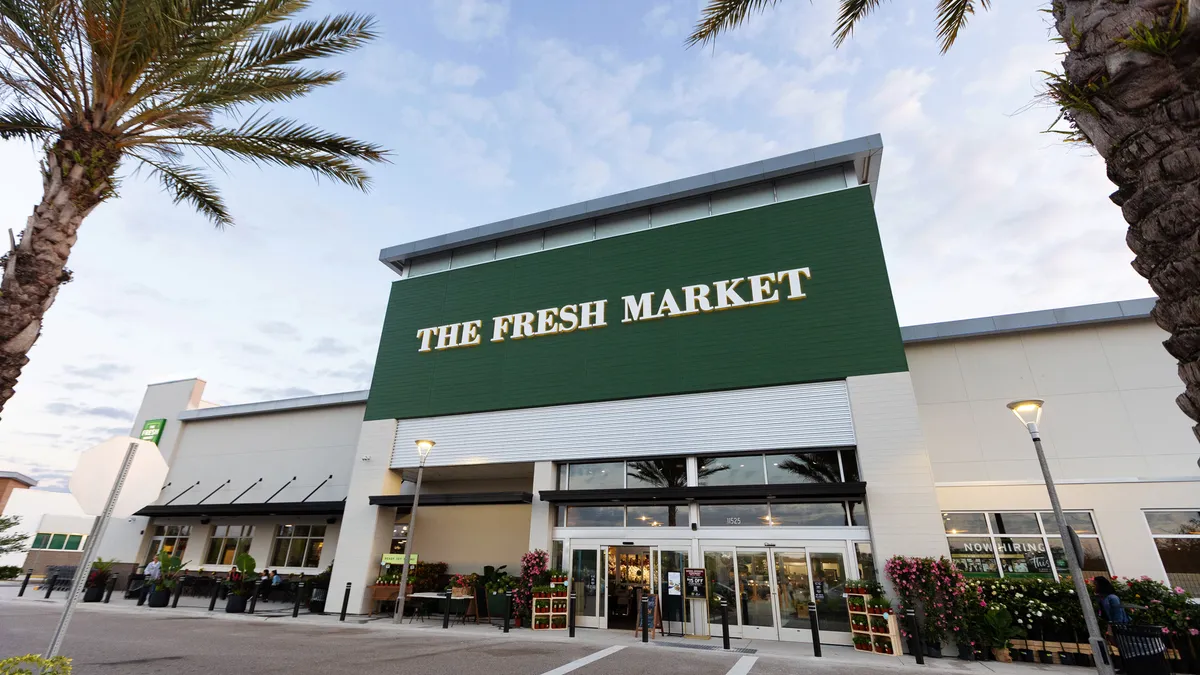Dive Brief:
- PCC Natural Markets, the nation’s largest natural foods retail cooperative, has changed its name to PCC Community Markets, according to a news release. The change reflects the Seattle retailer's desire to “put its longtime community legacy front and center,” according to the release.
- In addition, PCC will add a few new products and services to its ten stores, including a produce butcher, private-label meal kits and a wine and spirit shop that sources only local labels.
- PCC has also added a private label yogurt sourced from a local, grass-fed dairy operator. The line, which is the only local, organic, non-GMO, grass-fed, animal welfare-certified yogurt of its kind, according to the company, will hit stores on October 1.
Dive Insight:
Note: This post has been updated with information provided by PCC Community Markets
Over its nearly sixty years in business, PCC has developed a loyal following among Seattle natives who appreciate the co-op’s focus on quality and stringent standards for animal welfare, sustainability and other measures. The regional chain has historically been a trendsetter in the specialty industry. It was one of the first grocers to ban plastic bags in its stores, and it offered locally sourced products well before it was trendy to do so. Three years ago, PCC replaced all of its standard receipt paper with a BPA-free alternative.
But competition is fierce in the Pacific Northwest, where the tech sector is adding jobs and bringing in new residents in droves. In addition to perennial competitors like Safeway, Whole Foods and QVC, new competitors like New Seasons Market are coming to town. The specialty retailer, which hails from Portland, recently built a store on Mercer Island and has another in development in Seattle’s Ballard neighborhood.
Emphasizing its community roots and expanding its services should resonate with PCC’s values-driven customers. The new meal kits, in particular, could be a hit with its food-forward shoppers, and a natural evolution of the company’s increasing focus on prepared foods.
The biggest liability for PCC seems to be price. The co-op is not the cheapest retailer by any means. This hasn’t been much of a problem for it in the past, but with Amazon lowering prices at Whole Foods — and in its home city, no less — customers could be enticed to shift their shopping dollars.
In an email to Food Dive, a spokeswoman for PCC said that the co-op's prices are equal to or lower than other stores that carry similar products. She pointed to two store brands in particular: PCC Value products, which appear at an everyday low price, as well as the store's Field Day line of pantry items, which match or beat prices on similar items at competing stores. She also noted special promotions PCC offers, like 10% off one shop per month for store members.
While Whole Foods goes the value route, PCC will stick to its standards. As CEO Cate Hardy wrote in a recent note: “PCC’s product standards are among the highest in the nation.” It will be interesting to see if the co-op can effectively battle Amazon-Whole Foods with quality and values, or if price ultimately rules the day.










